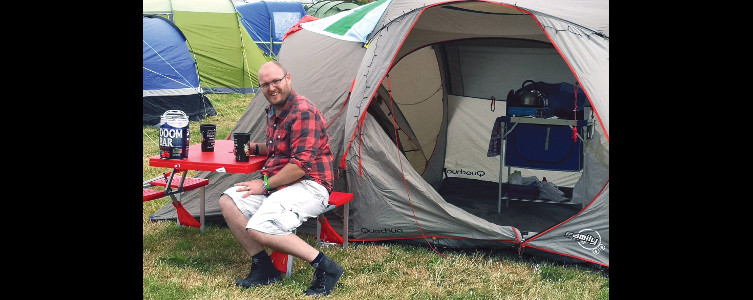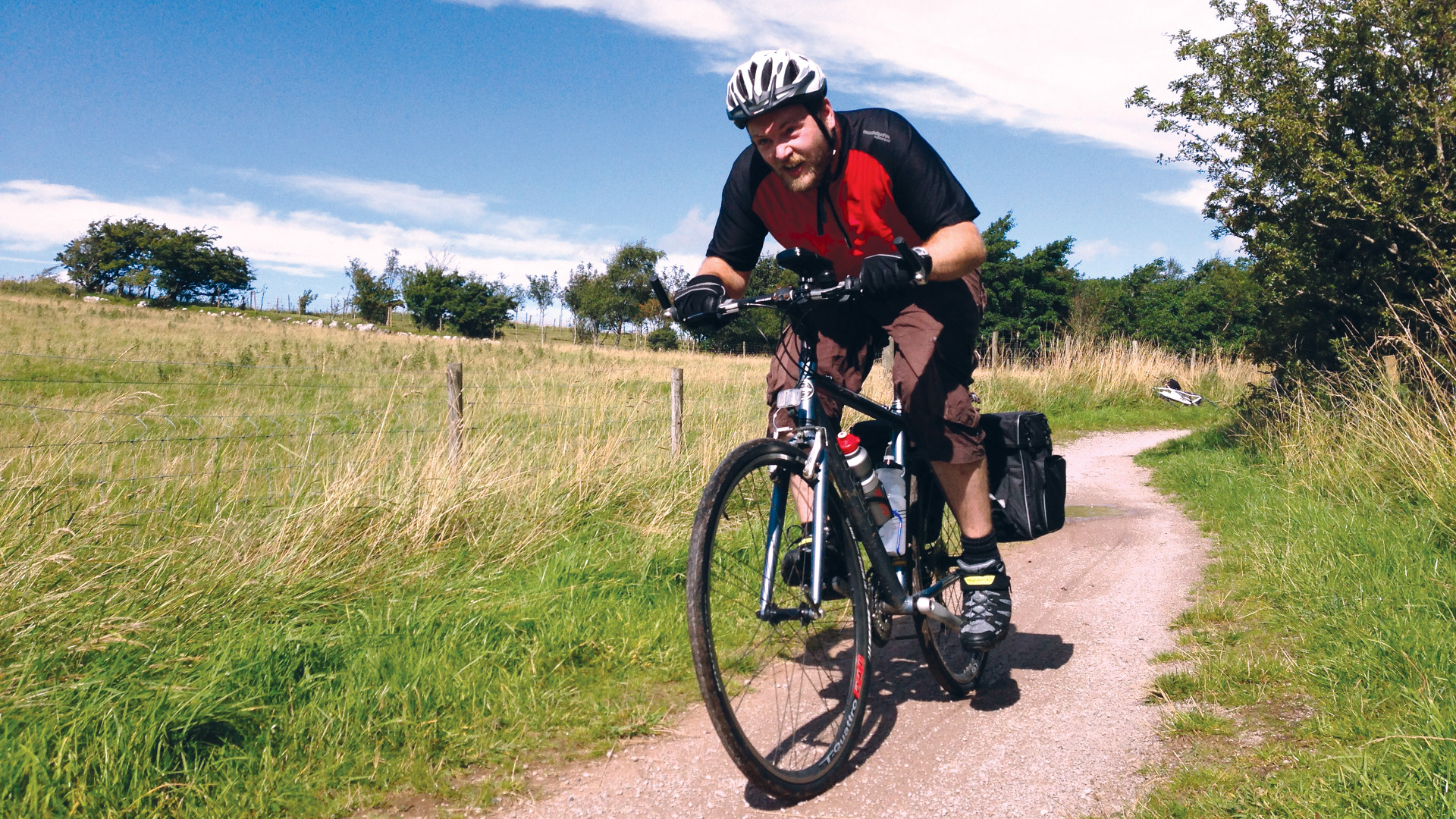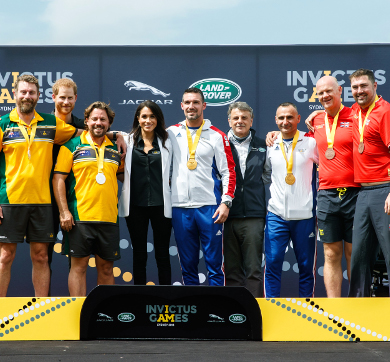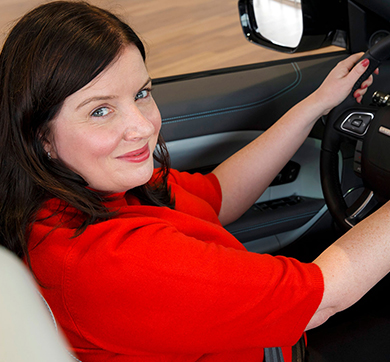December 2018 | 853 words | 3-minute read
As a child, Samuel Hall’s developmental milestones were slightly behind other kids his age. Just why this was so became evident only when the Jaguar Land Rover (JLR) employee — who is an NVH (noise, vibration and harshness) engineer in the Transmission and Driveline unit—entered his early teens.
It was then that he was formally diagnosed with dystonia, a type of cerebral palsy that causes unwanted muscle movements and spasms. The diagnosis helped him understand himself better, freeing him from the burden of thinking it was his fault for dragging his feet or slurring his words.

The condition increased in severity through his teenage years, affecting his neck, voice and legs, sending his muscles into spasm and causing tremendous pain. Naturally, school became a minefield. Hall recalls, “I got bullied a lot throughout school, but I didn’t let it get to me.”
A supportive family
What enabled this strength was the support Hall received from his family. “My parents never held me back from doing anything,” he says. “We used to go on annual skiing and mountain hiking holidays, and I was still able to take part in those activities along with my older brother.”
Towards the end of his schooling, Hall’s neurologist told him about a pioneering treatment. It involved Botox injections every four months into his neck and vocal chords to help reduce the severity and frequency of the spasms—a treatment that was initially available only at the National Hospital for Neurology and Neurosurgery in London.
It helped him cope with his college years. “I left home to go to university in the busy city of Manchester, very different from the quiet, seaside town of Penzance in Cornwall, where I grew up,” he says. “I studied mathematics as that was always my best subject in school.”
Hall completed a three-year honours degree, but found himself facing a different kind of challenge. He failed to get a job. However, he didn’t let that defeat him. “I thought if one degree doesn't work, try two degrees," he says. “I've always had an interest in how things are designed and the way they work, so I decided to take on a mechanical engineering degree, which has proved to be one of the best decisions I have ever made.”
Leap of faith
The next significant change in Hall’s medical condition came about after he finished university. “I felt as if my walking was getting worse,” he says.
On seeing the neurologist, he learned of a new procedure called deep brain stimulation. This neurosurgical procedure entailed inserting electrodes into his brain with a wire running down behind his ear, down his neck, over his collarbone and into a pacemaker-like device in his abdomen. There were underlying risks, including possible bleeding in the brain, infections and in extremely rare cases, stroke and even death. The risks were serious enough to outweigh any potential benefits the procedure promised. But Hall was undeterred. If there was a chance that this procedure could improve his life, he wanted it.
The operation was performed on August 3, 2017. Immediately afterwards, Hall lost the ability to speak. “The experience was frustrating,” he says. “I knew exactly what I wanted to say, but my brain could no longer send the signals that would enable my mouth to make the right shapes and help me express myself. It was also very upsetting, as I had not been informed that this might happen.”
He adds, “It put a great deal of pressure on my personal life. Have you ever had an argument with your partner when you don’t have the ability to speak? It’s not easy!”
Physically, he was recovering well, but Hall needed to win the battle in his mind. And he wasn’t about to give up. “I kept resting and trying to speak. Within a week, I was stringing words together; within a fortnight, I was able to put sentences together,” he says, adding that he also did his best to retain his sense of humour through it all.
Once again, his family and friends rallied around him, supporting his recovery process, patiently giving him the time that he needed to get out the words he wanted to say. “My amazing wife also deserves a medal for putting up with me during my recovery,” he says. “I can’t begin to describe how supportive she’s been.”
Another pillar of support
Hall was fortunate to find another pillar of support in his company, JLR. He was interviewed for the position he now holds a mere three months after his operation.
He says, “My speech wasn’t completely on track then. I informed my interviewers about my situation before the interview, and they were incredibly understanding. They gave me the time I needed to get certain words and sounds out.”
The supportive atmosphere at home and at work helped Hall make significant progress and feel far more confident about himself. He still needs to visit the hospital often to enable the doctors to monitor his progress and advise him properly. But over the last year, he says, “I have continued to improve steadily. I still have slight issues walking and a bit of an issue with my hands going into spasm, but, on the whole, I am much better than I was earlier.”
Never-say-die spirit
Optimism and the willingness to accept the challenges that life throws at him have served Hall well. He doesn’t see himself as an inspiration, even though, in many ways, that is what he is.
The boy who didn’t learn to cycle until late in childhood recently registered for a 192-km bike ride to raise money for the Prostate Cancer UK organisation. His dad, who was terminally diagnosed with the illness in 2012, has just finished his second course of radiotherapy.
At 192km, the challenge is a tough one, but Hall is never one to let that get in the way of his steely focus to achieve what he has set his eyes on.
—Cynthia Rodrigues













